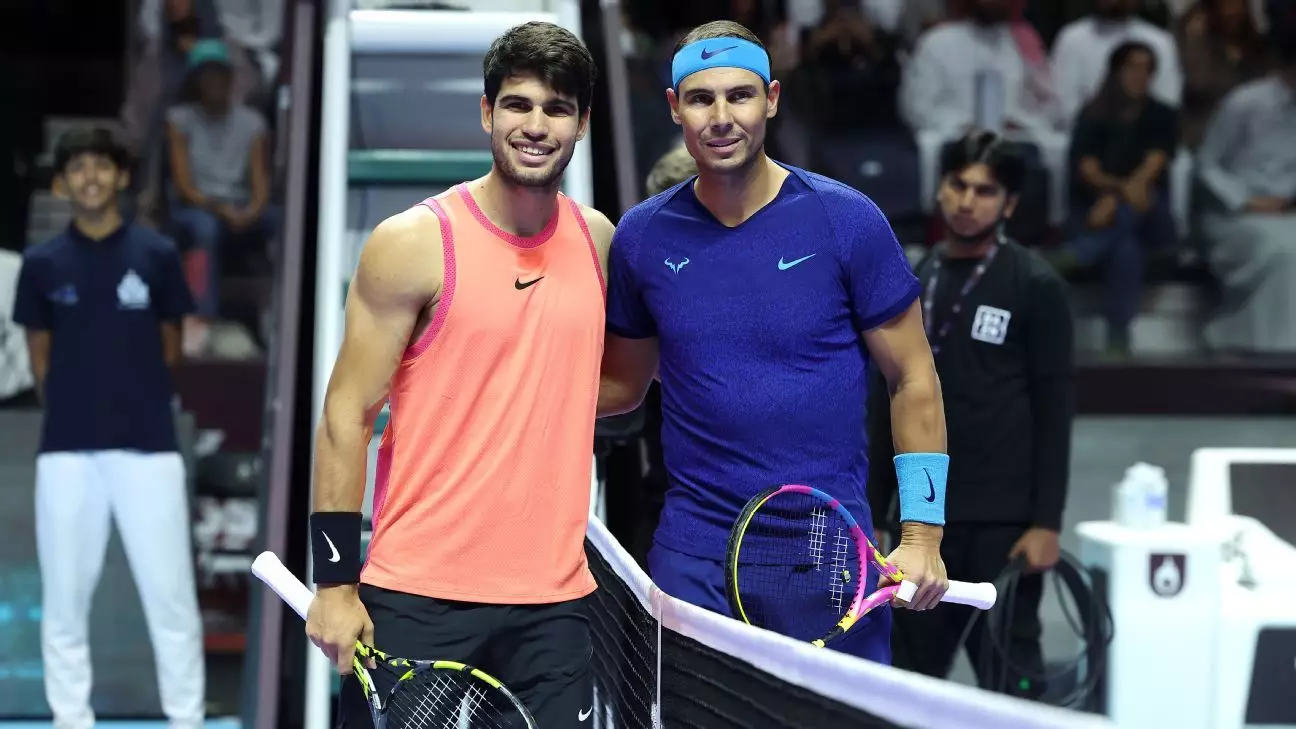Rafael Nadal, the iconic Spanish tennis player known for his tenacity and unparalleled success on the court, is preparing for his final appearance in the Davis Cup next month. Officially announcing his retirement on October 10, Nadal has stated that he will only participate in singles if he feels “100% sure” about his readiness to win. This statement is a testament to Nadal’s commitment not just to the sport, but also to his own personal standards of performance and competitiveness.
At 38 years old, Nadal’s decision to step back from professional tennis ignites a reflective discussion about the challenges athletes face as they approach the end of their careers. His transparency regarding physical readiness indicates a profound awareness of his limits—a crucial factor for longevity in a sport as demanding as tennis. The acknowledgment that emotional readiness does not necessarily equate to physical capability illustrates a mature understanding of the intricacies of athletic performance.
Nadal’s journey towards retirement is underscored by recent events that have influenced his decision. In a poignant turn of events, he recently faced his compatriot Carlos Alcaraz during the semifinals at the Six Kings Slam in Saudi Arabia, marking his first match since announcing his retirement. This contest inevitably highlighted the generational shift within tennis, emphasizing the new blood that is eagerly taking on the mantle of greatness. Despite a disappointing defeat, Nadal’s graceful acceptance of the situation reinforces his status as a sportsman of integrity and respect.
As he prepares for the Davis Cup, Nadal’s choice to step aside if he feels unprepared is indicative of a mental shift often necessary in the final stages of an athlete’s career. It underscores the importance of self-evaluation and the courage to accept when one’s performance may not meet the established benchmarks of success. Nadal’s commitment to supporting the Spanish team, even potentially as a doubles partner with Alcaraz, showcases his enduring loyalty to the sport and to the next generation of players.
Nadal’s presence in tennis transcends mere statistics; his legacy is about the values he brings to the court. His remarks regarding mentoring Alcaraz reflect a broader philosophy of nurturing talent and promoting sportsmanship in a field that often prioritizes individual success. The collective ethos that Nadal champions will likely resonate with many young players who aspire not only to win but to embody the spirit of the game.
As fans, we prepare to say goodbye to a player whose career has been defined by grit, grace, and an unwavering spirit. The forthcoming Davis Cup will not only symbolize the end of an era for Nadal but will also serve as a celebration of his significant contributions to tennis. As we anticipate this farewell performance, it becomes evident that, while Nadal may leave the competitive stage, his influence and teachings will continue to echo in the sport long after he has retired.

